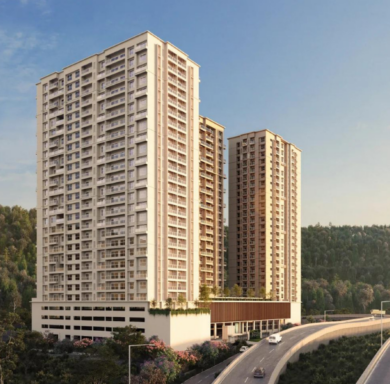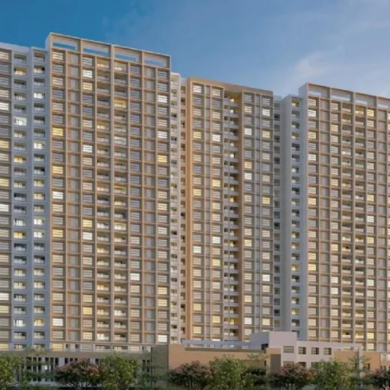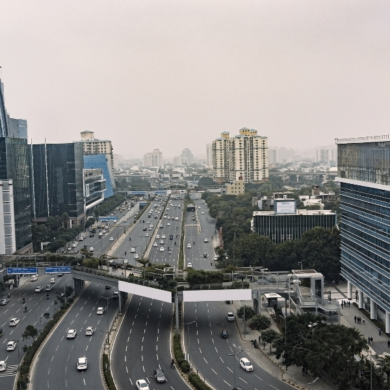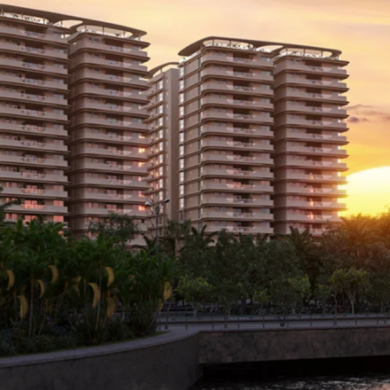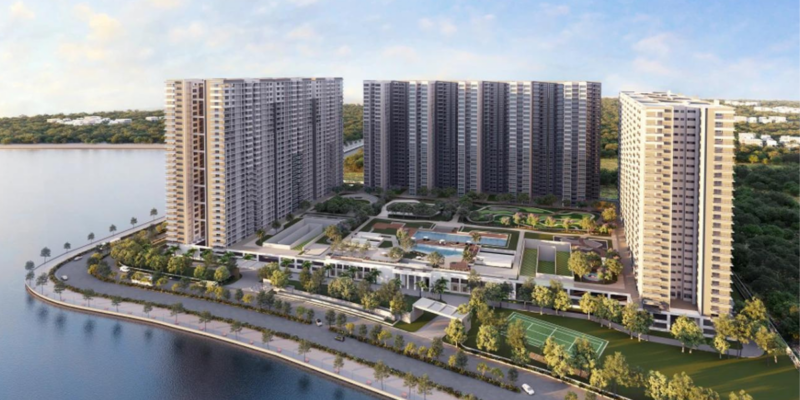
Investing in real estate in India offers a multitude of advantages. Investors can expect strong yield, multiple tax advantages, consistent income flow, diversification through strategically chosen assets, and the potential to leverage wealth.
Investing in a flat in India is a multifaceted decision that involves financial prudence, wealth creation, acquisition of an important asset, and strategic allocation of resources in pursuit of long-term gains. The real estate sector holds significant socio-economic weight. Investing in a flat in India is more than a personal financial choice – it is a commitment to participate in a market that mirrors the nation’s growth and aspirations.
Real estate investment involves ownership, acquisition, and management of physical property with the expectation of future financial returns. However, the debate surrounding the wisdom of investing in a flat is nuanced, encapsulating a spectrum of perspectives.
Table of Contents
Current Real Estate Market Trends
As of 2023, the Real Estate Industry in India commands a substantial valuation of USD 265.18 billion, with a projected growth trajectory surging towards USD 828.75 billion by 2028, boasting a remarkable compound annual growth rate (CAGR) of 25.60% during the forecast period spanning 2023 to 2028.
5 key trends of Real Estate Market in India
- The COVID-19 pandemic impacted the country’s real estate market. Stringent lockdown measures across all Indian states led to a temporary downturn in housing sales, with home registrations suspended and home loan disbursement slowed.
- The growth of the real estate sector is well complemented by the escalating demand for office spaces and the ever-growing need for urban and semi-urban accommodation. Notably, the construction industry ranks third among the 14 major sectors, considering its direct, indirect, and induced impacts on the overall economy.
- The real estate sector in India is the second-largest employment market, after agriculture. Forecasts suggest a surge in NRI investment in both the long and short terms. Beyond residential spaces, retail, hospitality, and commercial real estate are experiencing significant growth – catering to India’s burgeoning infrastructure needs.
- As per Savills India, the demand for data centres is anticipated to soar, with an expected increase of 15-18 million sq ft by 2025. The residential property sector has witnessed a surge in demand propelled by increasing urbanisation.
- When it comes to price appreciation, India stands among the top 10 housing markets internationally. Notably, foreign direct investment (FDI) in the real estate sector, encompassing construction development and related activities, reached USD 55.18 billion from April 2000 to September 2022, as the India Brand Equity Foundation (IBEF) report.
Pros of Investing in a Flat in India
-
Affordability:
Flats in India are more affordable than individual houses, making them an accessible entry point for property investment
-
Steady Rental Income:
Flats in urban areas witness a consistent demand for rentals, providing investors with a reliable and steady income stream
-
High Demand in Urban Areas:
Consistent influx of students and professionals from different regions to major cities ensures a continuous high demand for flats, enhancing the potential for rental returns
-
Lower Maintenance Costs:
Compared to standalone houses, maintenance costs associated with flats are generally lower, relieving investors of substantial financial burdens
-
Diversification Opportunities:
Investing in flats creates a diverse property portfolio, enabling investors to spread risk across different locations and markets
-
Ease of Management:
Managing a flat is often more straightforward than handling a house, making it an attractive option for investors seeking hassle-free ownership experience
-
Potential for Appreciation:
Flats in developing areas or regions experiencing infrastructure growth have the potential for significant appreciation in value over time
-
Accessibility and Convenience:
Luxury flats are situated in prime locations with easy access to offices, public transport, and various amenities, which appeal to both tenants & buyers
-
Liquidity:
Being in demand, flats are relatively easier to sell than other types of real estate – offering investors better liquidity when needed
-
Appeal to Young Professionals:
Modern lifestyle preferences of young professionals often align with the convenience offered by flats, making them a sought-after choice and ensuring consistent demand in the market
Cons of Investing in a flat in India
-
Limited Appreciation:
Flats in distant suburbs may experience slower appreciation compared to houses, limiting the potential for significant capital gains in the long term
-
Association Fees:
Many flats in India come with monthly or annual association fees, leading to increased financial burden for investors
-
Dependence on Market Trends:
The value of flats is susceptible to fluctuations, due to market trends, economic conditions, and local developments
-
Lack of Privacy:
Flats typically involve proximity to neighbours, reducing privacy compared to standalone houses
-
Maintenance Costs:
While lower than independent houses, maintenance costs for flats can still be a concern, especially if the building is poorly managed or lacks sufficient maintenance funds
-
Tenant Turnover:
Flats may experience higher tenant turnover, leading to more frequent vacancy periods and potential income gaps for investors
-
Limited Customisation:
Unlike houses, flats offer limited customisation options, restricting the ability to tailor the property to personal preferences or market demands
-
Market Saturation:
In some areas, the market for flats may be saturated, leading to increased competition and potential challenges in finding tenants or buyers
-
Regulatory Challenges:
The real estate sector in India is subject to regulatory changes, and investors in flats may need to navigate complex legal requirements and documentation
Location Considerations while Investing in a Flat
Strategic location considerations are pivotal in shaping the overall investment outcome when contemplating the worthiness of investing in a flat in India. One crucial aspect is the choice between emerging and established areas. While emerging areas may offer lower entry costs and potential for higher appreciation, established locales often provide a sense of stability and proven market performance.
Proximity to key infrastructure and amenities is equally vital. Accessibility to transportation hubs, educational institutions, healthcare facilities, and commercial centres significantly influences the property’s appeal to potential tenants or buyers. Additionally, savvy investors keenly examine future development plans in the area.
Financial Considerations before Buying a Flat in India
Investing in an apartment in India is a significant financial decision that requires careful consideration. Whether looking for a home or aiming to diversify your investment portfolio, several key economic factors should be thoroughly examined before making a substantial commitment.
-
Budgeting:
Cost is the first and foremost consideration when contemplating a flat purchase. Evaluate your financial health and determine how much you can comfortably allocate towards buying a property. Consider the upfront costs like the down payment and multiple ongoing expenses such as taxes on property, maintenance, and utility bills. Setting a realistic budget will guide your property search and help you avoid overstretching your finances.
-
Financing Options and Interest Rates:
Home loans are a standard method to fund real estate purchases in India. Research different lenders, compare interest rates, and analyse the terms & conditions. Understanding the implications of fixed and floating interest rates is crucial, as it can significantly impact monthly payments.
-
Return on Investment:
Assessing the potential return on investment (ROI) is vital. Consider the location’s growth prospects, nearby amenities, and overall real estate market trends. Historical data on property appreciation in the area can provide insights into its potential future value.
-
Market Conditions and Trends:
Real estate markets can be dynamic and influenced by economic trends, infrastructure development, & government policies. Consult with real estate experts or financial advisors to gain insights into the market’s trajectory.
Legal and Regulatory Compliance in Flat Investment
Investing in a flat in India can be lucrative, but navigating the complex legal landscape is crucial to safeguarding your investment.
Understanding Property Laws
India’s real estate sector is governed by many laws & regulations that vary across states and regions. Some fundamental laws include the Transfer of Property Act, Real Estate (Regulation and Development) Act (RERA), and local land acquisition & tenancy laws. Understanding these legal frameworks will provide insights into your rights as a property owner.
Due Diligence in Property Transactions
Thoroughly investigate the property’s legal, financial, and physical aspects. Engage professionals, such as legal experts and property surveyors, to conduct a comprehensive due diligence process. This includes checking for any encumbrances, pending litigations, or disputes related to the property.
Documentation and Title Verification
Ensure that all relevant documents, such as sale deeds, property tax receipts, and building approvals, are in order. Title verification is crucial to confirm the legal ownership of the property. Ensure you get a certified copy of the title deed and investigate the ownership history to rule out disputes.
Compliance with RERA
The Real Estate (Regulation and Development) Act, commonly known as RERA, was enacted to protect the interests of homebuyers and promote transparency in the real estate sector. RERA mandates that developers provide accurate project details & timelines, and adhere to quality standards.
Environmental Clearances and Building Approvals
Local authorities’ approval is essential to confirm that the construction complies with zoning regulations and safety standards. Lack of proper permissions can lead to legal challenges and, in extreme cases, demolition orders.
Impact of Economic Factors
Investing in real estate, especially in the form of a flat in India, requires a keen understanding of the economic landscape. Economic factors play an essential role in determining the profitability of such investments.
Inflation and its Effects on Real Estate
The general price level of goods and services has a direct impact on real estate. While moderate inflation can benefit property values, hyperinflation or deflation can pose challenges. Assessing the inflation rate in the context of the property’s location and the overall economic climate is essential. High inflation may lead to increased construction costs, impacting the affordability of new projects.
Interest Rate Movements
With low interest rates, borrowing becomes more affordable – stimulating real estate transactions and potentially increasing property prices. Conversely, rising interest rates may increase borrowing costs, slowing the real estate market. Prospective buyers and investors should closely monitor interest rate movements and assess their financial implications on mortgage rates & overall investment costs.
Economic Stability
A robust and growing economy often increases demand for housing and commercial spaces, positively influencing property values. Job market trends, including employment rates and salary levels, impact the purchasing power of individuals, thereby affecting the real estate market. Cities with thriving industries and diverse employment opportunities attract more real estate investment as they offer a stable and potentially appreciating market.
Comparison with Other Investment Options
Aspects |
Real Estate |
Stock Market |
Fixed Deposits |
| Returns and Appreciation Value | Generally appreciates over time | Can provide high returns, but is volatile | Fixed returns; may not beat inflation |
| Liquidity | Less
(Selling may take time) |
High
(Easy to buy & sell) |
Moderate
(premature withdrawals may have penalties) |
| Risk & Volatility | Relatively stable; lower short-term risk | High volatility; short-term risk is higher | Low risk; stable returns but lower potential for high returns |
| Diversification Opportunity | Offers physical asset diversification | Provides sector and company diversification | Limited diversification |
| Income Generation | Possibility of rental income | Dividends and capital gains | Fixed interest income |
| Initial Investment and Costs | Higher initial investment; property-related costs | Lower initial investment; brokerage fees | Lower initial investment; no additional costs |
| Tax Implications | Tax benefits on home loans; tax on rental income | Capital gains taxed; dividends taxed | Interest income taxed |
| Long-Term vs. Short-Term | Generally a long-term investment | Can be both short-term and long-term | Usually a medium to long-term investment |
Diversification Strategies
Spreading risk across different asset classes is an important principle in investment strategy to reduce overall portfolio risk. A well-diversified portfolio combines diverse asset types such as stocks, real estate, bonds and other instruments. While participating in the stock market for potential growth, an investor can diversify by allocating some of the portfolio to real estate.
Future Trends and Predictions for Flats in India
Technological Innovations in Real Estate
The future of real estate in India is undeniably intertwined with rapid technological advancements. Technology is reshaping how people buy, sell, and manage properties – from virtual property tours and augmented reality for better visualisation to blockchain for transparent & secure transactions.
PropTech companies are introducing innovative solutions like smart home automation, predictive analytics for property value assessments, and even virtual reality showrooms. Embracing these technologies enhances the overall customer experience and streamlines processes, making real estate transactions more efficient and accessible.
Sustainability and Green Living Trends
As environmental consciousness continues to grow, the real estate landscape in India is witnessing a shift towards sustainability and green living. Future trends suggest an increased focus on eco-friendly construction materials, energy-efficient designs, and integration of renewable energy sources.
Green certifications, such as LEED (Leadership in Energy and Environmental Design) and GRIHA (Green Rating for Integrated Habitat Assessment), are gaining prominence and influencing residential & commercial developments. This trend aligns with the rising demand from homebuyers for properties with sustainable lifestyles and lower carbon footprint.
Forecast for Property Values in the Coming Years
The real estate sector has undergone different changes due to the pandemic, and its impact on regional housing markets is expected to persist over the next five years. Emerging technologies, shifting demographics, local job market conditions, and the rise of remote work are trends shaping the housing market’s future.
Property prices are expected to maintain steady appreciation, although the growth rates may vary across different cities & regions. Metropolitan areas are likely to witness higher price increases compared to smaller towns. In light of these trends & forecasts, staying well-informed about the evolving dynamics of the real estate market is crucial for homebuyers & investors.
The decision to invest in a flat in India is multifaceted, demanding careful consideration of both opportunities & challenges. While the real estate market offers stability and the potential for long-term appreciation, it is crucial to acknowledge the hurdles, such as fluctuating market conditions, regulatory complexities, and substantial upfront costs.
However, beyond the financial aspects, investing in a flat holds profound emotional significance for many individuals. As a long-term commitment that involves hard-earned money and aligns with life goals, the desire to own a flat or home is often deeply rooted in personal aspirations. In this context, the investment transcends monetary value, becoming a priceless endeavour driven by emotional fulfilment.
Therefore, the decision to invest in a flat in India goes beyond mere financial calculations; it is a journey that intertwines with individuals’ and families’ life goals and aspirations.
FAQs
1. Is buying a flat in India a good investment?
Yes, buying a flat in India can be a good investment. Apartments often appreciate over time, provide potential rental income, and are a tangible asset. However, it is crucial to consider market trends, location, and personal financial goals to make an informed decision.
2. Which is better, flat or house, in India?
Flat is better than house in India, in terms of convenience, shared amenities, and cost-effectiveness, while homes are better as they provide more space & privacy. The choice between a flat and a house in India depends on individual preferences.
3. Is it OK to buy an investor flat?
It is OK to buy an investor flat, especially if it has proven rental income history and is situated in a promising location. Investors often choose apartments for their potential returns and relatively lower maintenance.
4. Which is better, flat or plot?
Flat is better than plot in terms of convenience and amenities, while plots are better when it comes to customised construction. The decision between a flat and a plot depends on personal preferences, lifestyle, budget, and long-term goals.
5. What happens to a flat after 50 years?
After 50 years, the condition of a flat depends on maintenance. Well-maintained flats can remain habitable, but factors such as building structure, materials, and local regulations play a significant role.
6. Do flats depreciate in value?
Flats can depreciate in value under certain circumstances, such as poor maintenance or economic downturns. Regular upkeep, market conditions, and location influence the value of a flat.
7. Do flats appreciate in value?
Flats can appreciate in value over time, especially in growing real estate markets. Factors like location, infrastructure development, and market demand contribute to appreciating flat values.
8. Why do people buy flat?
People buy a flat for various reasons, including the convenience of shared amenities, lower maintenance responsibilities, potential rental income, and the long-term investment value of real estate.
9. Why do people live in flats?
People live in flats because of affordability, convenience, security, shared amenities, and a community of like-minded families. Flats often align with urban lifestyles, providing a practical and comfortable living solution.
10. Is it safe to live in a flat?
Yes, it is safe to live in a flat, with security measures in place. It is essential to consider factors like location, building security, and local crime rates when choosing a flat for residence.

